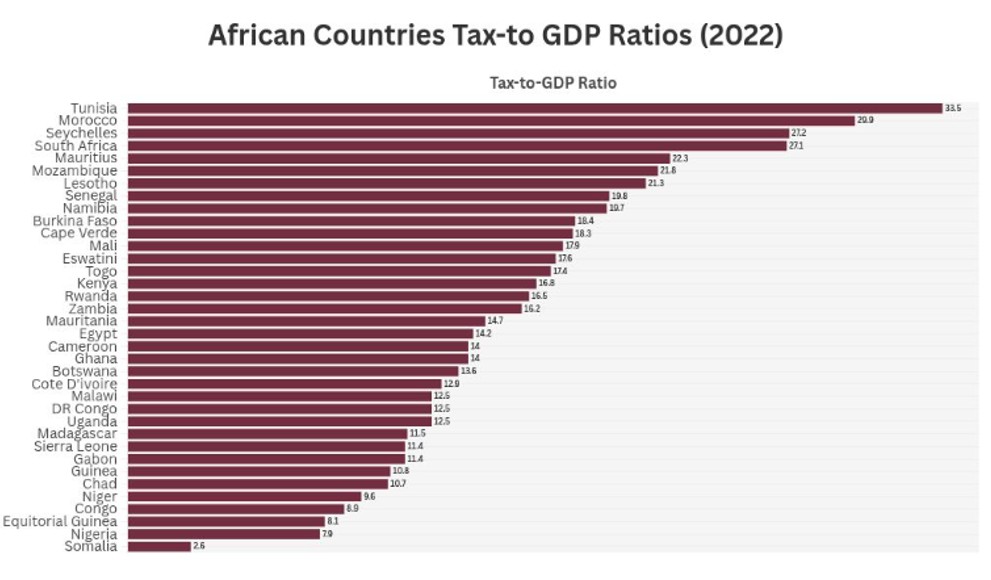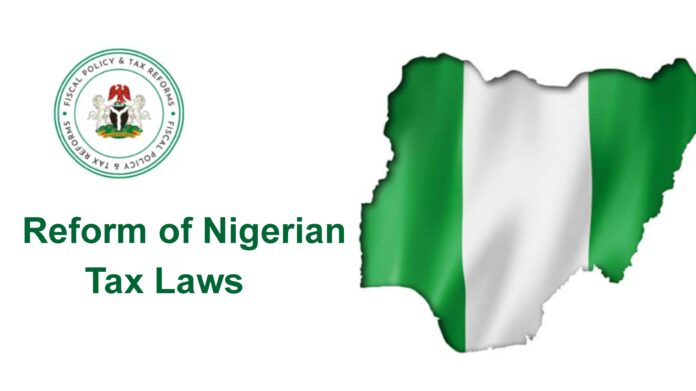In June, President Tinubu assented to four tax laws. These changes will provide only very minor gains for working peoples. We hope that the reduction in the number of taxes will lead to a reduction in the level of extortion in the informal economy. But after so many years of talking, implementation of the new tax laws is not due to start until the beginning of next year. We review the changes and how these may affect working people.
Any benefits from the changes to personal income tax will be marginal except for the very rich (senators, for example, who will have to pay a bit more). No workers will feel any less poor with these changes. The highest rate of income tax will be only 25% compared with at least 45% in Britain (and South Africa) and 37% in the US. As a result, income tax will have almost no impact on inequality.
| Monthly gross pay | Income Tax paid now N % | With Nigeria Tax Bills N % | Savings N | ||
| N70k – minimum wage | 3,327 | 5 | 0 | 0 | 3,327 |
| N100k – GL7 | 6,500 | 7 | 2,500 | 3 | 4,000 |
| N150k – GL10 | 12,967 | 9 | 10,000 | 7 | 2,967 |
| N250k – GL15 | 29,167 | 12 | 25,000 | 10 | 4,167 |
| N1m – Above Director | 170,667 | 17 | 159,500 | 16 | 11,167 |
| N12m – Senator? | 2,257,867 | 19 | 2,823,333 | 24 | (565,467) |
The above rates are taken from the official tax calculator – http://bit.ly/PITCalculatorNg
The VAT rate stays at 7.5% (so that is a relief) and food, health, education, accommodation and electricity will be exempt. States and local governments will receive a larger share of VAT revenue.
Businesses will not have to pay taxes until their annual turnover reaches 100 million naira. This is four times the current level. Income tax for large companies is proposed to be reduced from 30% to 25%. At independence Nigeria’s, corporation tax was 45 per cent. This continued until 1979 and then it was gradually reduced as part of the neoliberal reforms. There is international competition to reduce company taxation rates to try to attract foreign direct investment. Nigeria is not being successful at this. These changes will mean that large companies pay even less tax.
The overall rate of tax paid by rich individuals and companies has increased over the last few years. It was one of the lowest in the world and is now approaching the African average. But it is still far lower than South Africa, for example, and less than Ghana. The following graph shows the position from a couple of years ago.

Rich individuals and companies are certainly not paying the taxes that they are legally obliged to pay. It is estimated by the Chair of the Presidential Fiscal Policy & Tax Reforms Committee that on average companies only pay 30% of the taxes that they are due to pay. The target for this year is that they should pay less than 60%. In addition, the new laws provide a series of tax exemptions for companies to reduce the tax that they may pay.
According to a recent government study, at least 99% of the super-rich avoid paying their legal level of taxes – a compliance rate of just 0.035%. Of the 115,000 individuals ‘earning’ more than N40 million at year, only 40 were paying even the legally required levels of income tax.
An equitable tax system should reduce inequality. If the richer members of society paid more taxes, then governments could easily afford to pay a much higher minimum wage and increase spending on health and education so that no-one had to be pay fees for at least primary health and education. This would great reduce unnecessary deaths from common diseases and the record level of out of school children.
For more details see the following two reports:
https://www.oxfam.org/en/research/africas-inequality-crisis-and-rise-super-rich






